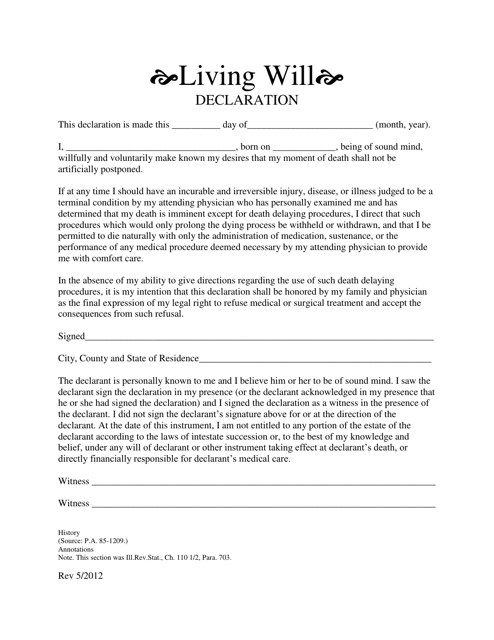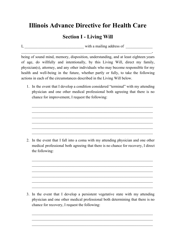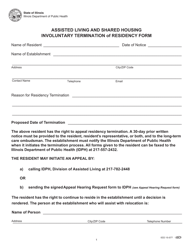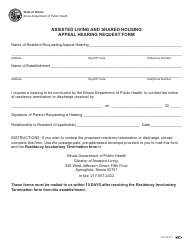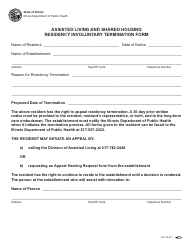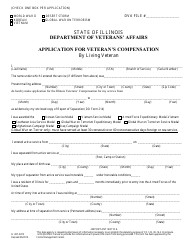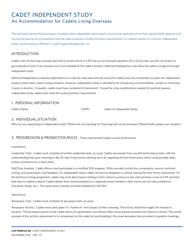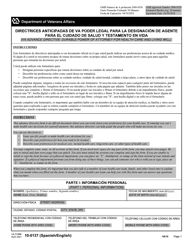Living Will Form - Illinois
An Illinois Living Will - sometimes confused with an Advance Directive - is a vital piece of paperwork that allows all patients to ensure that their wishes regarding life-sustaining medical treatment are honored by doctors and healthcare professionals working in the state of Illinois. Living Will forms are legal tools used to assure that the patient's wishes with respect to the number and quality of medical procedures are carried out in their final days or when they are incapacitated.
These forms reflect the patient's rights of consent and medical choice under conditions whereby they are no longer capable of choosing the procedures they wish to undergo for themselves. Any will is a significant legal document that should be given careful thought and discussed with the family, a physician, and care providers. It is highly recommended that a discussion of the patient's wishes occurs before any medical treatment is necessary, since the will may directly involve the patient's family or require them to assist in its implementation.
You can download a pre-made form released by the Illinois Department of Public Health on May 1, 2012 , through the link below.
An Illinois Living Will is defined by 755 ILCS 35/2(b) and regulated by 755 ILCS 35/1 (Illinois Compiled Statutes) . The will must be signed by the individual (or another at the individual's direction) and witnessed by two (2) adult individuals. This document is not valid in Illinois if the patient is pregnant.
What Is an Illinois Living Will?
A Living Will is a legal form that lets all participating parties know about the kind of medical care and palliative care a patient wishes to receive. When creating a will, the individual will be deciding on the types of care that they are willing to receive and the types of medical care they will not be receiving. For example, some people choose to not be resuscitated if they stop breathing while in a coma, while others choose to remain on life support.
An individual can print out a basic Living Will template with or without the assistance of an attorney. The document may be revoked in writing or orally, by either the patient (the person making the will) or by a designated proxy (the person elected to make healthcare-related decisions for the patient).
How to Make a Living Will in Illinois?
Difficult health-related situations can occur to any person at any age, so it is a good idea for all adults to have a will. Usually, a basic ready-made template should address most of the medical procedures common in life-threatening situations, such as resuscitation via electric shock, ventilation, and dialysis. An individual can choose to allow some of these procedures or none of them. They may also indicate whether they wish to donate organs and tissues after death. Even if a person refuses life-sustaining care, they can express the desire to receive pain medication throughout final hours including the related provisions in their Living Will.
When completing a will an individual may appoint an agent - or a health care proxy - to make decisions on their behalf in the event of incapacitation. No notarization is required unless otherwise specifically requested by the proxy.
